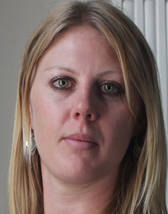Seminar series: Illicit Economies, Violence and Development
The Centre for the Study of Illicit Economies, Violence and Development (CIVAD) at SOAS, and the Royal United Services Institute (RUSI), organised a series of six seminars bringing together academics, students, policy makers and practitioners with an interest and engagement in questions of illicit economies, violence and development.
Seminar 1: Frontiers, Illicit Flows and the Geographies of Uneven Development
This opening seminar discussed how the circulation of illicit flows (capital, commodities, people, ideas) shape and connect processes of (uneven) development within and across regions. Rethinking what is meant by key terms, it will took a systemic and structural look at how the world is changing, setting the agenda for the rest of the series.
Chair: Jonathan Goodhand (SOAS University of London)
Panelists: Michael Watts (University of California, Berkeley) and Dolly Kikon (University of Melbourne)
Seminar 2: Illicit economies, violence(s) and state formation in Latin America
Chair: Jeff Garmany (University of Melbourne)
Speaker: Jenny Pearce (London School of Economics)
Seminar 3: The everyday life of drugs: producers, dealers, consumers, enforcers
This session, held in-person in London, showcased research on the everyday realities, perspectives and experiences of participants in illicit drug economies, and discussed the wider implications of everyday perspectives on drugs. How can the narrative frame around drugs shift to bring everyday life to the centre?
Chair: Maziyar Ghiabi (University of Exeter)
Panelists: Frances Thomson (University of Bradford); Neil Carrier (University of Bristol)
Discussant: Niamh Eastwood (Executive Director, Release)
Seminar 5: Creating and implementing financial disruption strategies – successes and challenges. A UNODC perspective
Chair: Heather Marquette (University of Birmingham and FCDO)
Speaker: Oliver Gadney (UNODC Global Programme Against Money Laundering)
Seminar 6: Terrorism and illicit finance
In 2019, the Security Council passed Resolution 2482, expressing ‘concern that terrorists can benefit from organized crime … as a source of financing or logistical support’. The resolution stressed the urgent need for research on the interlinkages that may exist between terrorism, organised crime and illicit finance. This reflected the growing international focus on the crime-terror nexus. This session will explore this nexus in practice including top-down responses alongside local efforts that harness local knowledge, local researchers and civil society.
Chair: Emily Winterbotham (RUSI)
Panel: Dr. Hans-Jakob Schindler (Counter Extremism Project); Joana De Deus Pereira (RUSI) (final panel TBC)
Date: 9th March 2023
FEATURING
Dr Antonio Giustozzi
Senior Research Fellow
Terrorism and Conflict
Emily Winterbotham
RUSI Senior Associate Fellow, Terrorism and Conflict
Dr Joana de Deus Pereira
Senior Research Fellow
RUSI Europe



